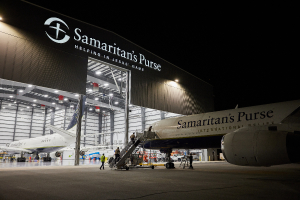Navy Seal Team Six: The Challenges of Rebuilding Following a Debilitating Loss
The major military casualty that took place this past the weekend in the Wardak province of eastern Afghanistan raises several critical questions about future of U.S. special military forces and the increased challenges they are now likely to face in Afghanistan and worldwide.
The deadly helicopter attack this past Saturday that claimed the lives of 38 people and took ownership of the title for the worst single loss of the U.S. military since it arrived in Afghanistan in 2001, has also resulted in a massive loss for the US Navy Seal Team Six special operations unit.
Several of the Navy Seal’s Team Six unit were part of the American serviceman that were called to aid a smaller unit of Army Rangers that had come under heavy fighting in eastern Afghanistan.
Navy Seal’s are already an elite unit within the military that are trained to carry out some of the most dangerous operations. However, Navy Seal Team Six is an even more elite unit with its numbers rounding out to about 200 individuals that have undergone around five years of fierce and exclusive training.
Team Six was responsible for the raid that killed Osama bin Laden this past May and is the most feared unit in the United States military.
A former Seal Team Six member told NPR last May, “These guys are trained not just to go out and kill, (which sounds) indiscriminate, but to use that judgmental use of deadly force.”
Saturday's crash resulted in a 10 percent loss for the unit, and the major question that arises is how to fill the void of the now missing members.
The causalities come at a time when, prior to his departure, former Special Forces commander Eric Olsen had already expressed concern over unit overstretch.
Ironically, on Monday, just two days after the attack, Oslen attended a pre-scheduled ceremony in Florida to pass on his commander position of the Special Forces to Adm. William McRaven.
At the typically positive ceremony, U.S. Defense Secretary Leon Panetta discussed the recent causalities and said, “This is a reminder that we remain a nation at war. One that has seen its share of triumph and tragedy. Special operators have been at the heart of many of those triumphs. And, as we all know, that comes oftentimes at a very high cost.”
With imminent pullouts of U.S. military personal from Afghanistan looming, the challenge of the Special Forces comes at a time when the forces are already being over-used while the need for their expertise in Afghanistan will inevitably rise.





























